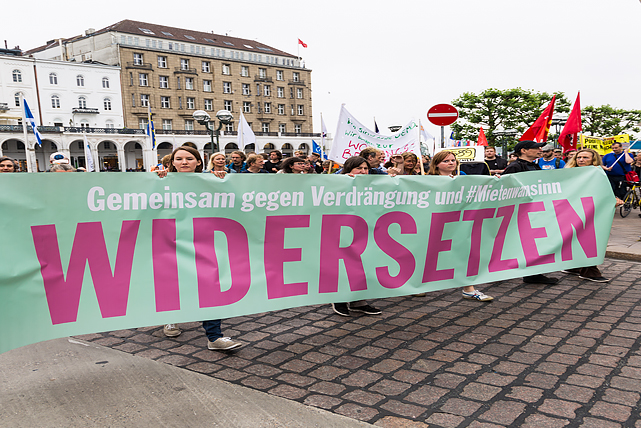Arenas of Conflict: Planning and Participation in Plural Democracy
Research department: Politics and Planning
Project Leader within IRS: Dr. Manfred Kühn
Funding Organization: German Research Foundation (DFG)
Duration: 01/2023 - 06/2026
Whether it is protests against large-scale projects such as Stuttgart 21, wind turbines or development plans in growing cities: Spatial planning is increasingly confronted with conflicts. Planning actors face a dilemma in dealing with these conflicts: On the one hand, there are demands to speed up approval procedures, also in order to achieve widely accepted and public welfare-oriented goals such as climate protection, energy transition and housing construction. On the other hand, the demands on public participation are increasing. In this context, the classic forms of citizen participation are reaching their limits. This is because "more participation" or direct forms of democracy through referendums often do not contribute to the pacification of conflicts, but can exacerbate them.
In international planning theory, the increased relevance of conflicts has been taken up by approaches of agonistic planning. Following the political researcher Chantal Mouffe, these see conflicts in pluralistic democracies as immanent and positive. These approaches are distinct from the consensus-oriented approaches of communicative planning theory. According to them, it is important to transform antagonistic struggles between enemies into agonal confrontations between opponents within the framework of democratic institutions and to establish a "conflictual consensus". An important prerequisite for the taming of antagonistic conflicts is the acceptance of rules of conflict resolution by the opponents of the conflict. As a result, the forms of participation in planning and approval procedures move to the centre of conflict resolution.
The aim of the project is to further develop existing planning theories by distinguishing between rational, communicative and agonistic types of planning in dealing with conflicts and by examining planning conflicts in empirical case studies in practice. The project aims at a closer connection of planning research with political science approaches of participation and democracy research. To this end, the approach of the conflict arena is used.
Conflicts arise when incompatible interests, goals or values clash and fight with each other (Latin confligere: to meet, to fight). "Conflict arenas" are therefore defined as public places of conflict, where actors in participatory processes with conflicting interests meet in the run-up to decisions. This clash creates a public space of dispute within planning and approval procedures between planners or project promoters, proponents and opponents. In the rational planning type, these arenas include the formal forms of participation, in the communicative planning type the informal forms of public participation, and in the agonistic planning type the open discussion of alternatives.
The project pursues the following guiding questions:
1. in what relationship do rational, communicative and agonistic types of planning occur in conflict situations in practice?
2) Which arenas and levels of participation contribute to the democratic resolution and regulation of conflicts and how?
Under what conditions do participation procedures in planning transform antagonistic conflicts into agonistic ones?
The approach of conflict field analysis is used for the empirical analysis of planning conflicts. In six empirical case studies, conflicts in the fields of urban development planning, urban land use planning and approval of projects in large and medium-sized cities in Germany are examined. The qualitative research focuses on conflicts in planning participation procedures. By alternating deductive and inductive methods of qualitative research, the project strives for a close connection between planning theory and practice.
The project works with the following qualitative methods of social research, combining policy and planning analyses:
-Document analyses (including local concepts, protocols, reports).
-media and press analyses
-Guided expert interviews: with politicians, administrators, civil society and the business community
-Comparative empirical case studies
-Expert workshops: to discuss the generalisability of the results.
Results are presented at national and international conferences and published in articles in national and international journals.
Photo: Rasande Tyskar/CC BY-NC 2.0/flickr.com


